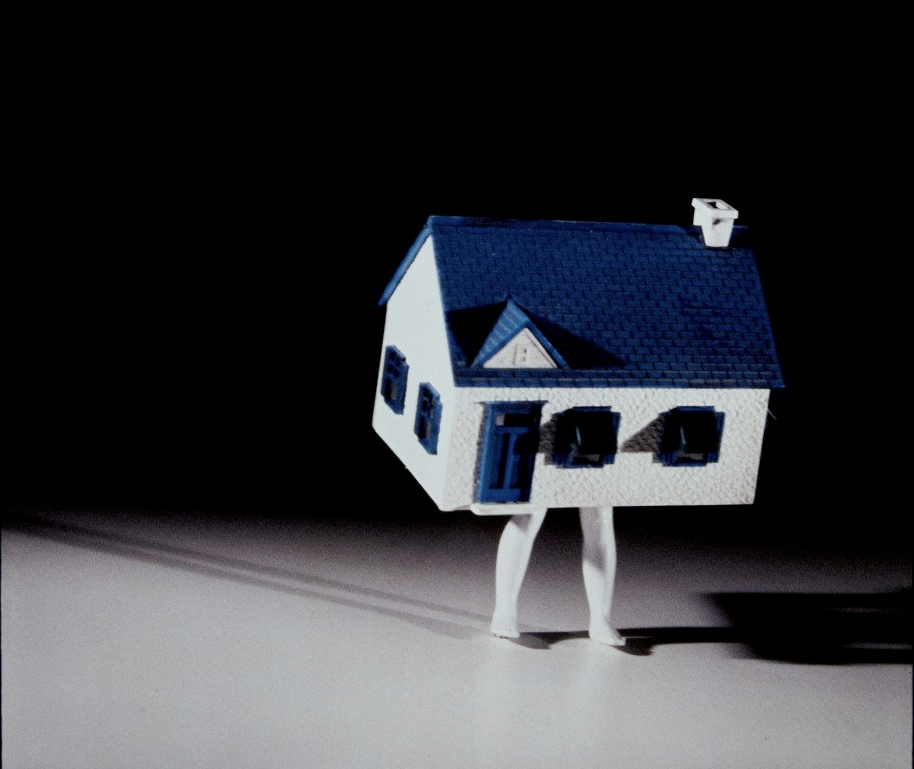
Laurie Simmons. Walking House, (Detail). 2014.
The summer after my first year in college, I taught theatre at a summer camp in rural Maine, where I presided over a cabin of pre-teen girls. As I remember it, I arrived early, raided the prop department, and decorated the bunks with a set of giant gold curtains, hoping to make my young charges feel at home. (They didn’t.)
Taste is relative. Cabins are cabins. And shelter is not the same as home.
Lesson learned.
All things being equal, you don’t go to summer camp to stay in your cabin: at camp, as in life, you’re rewarded for engaging with other people, for going places and doing things and staying busy. Outside trumps Inside. Activity trumps solitude. You’re not supposed to sit still, or, for that matter, to sit indoors: a healthy body, after all, yields a healthy mind.
Ralph Waldo Emerson disagreed. Let us not rove, he once wrote. Let us sit at home with the cause. A century earlier, the 17th-century theologian Blaise Pascal made a similar observation. The sole cause of people’s unhappiness, he wrote, is that they do not know how to stay quietly in their rooms.
Sheltering in place means just that: you stay right where you are and you hunker down. It’s an artificial container, and for anyone stranded, or alone—or stranded and alone—it’s a deeply disorienting one. Physical parameters are minimized. Daily routines are disabled. Mileage may vary on how skillful you are at mastering this kind of psycho-spatial adaptation, but it’s perhaps fair to say that gold curtains are not going to help.
However, your imagination might.
In his landmark book, The Poetics of Space, the French philosopher Gaston Bachelard looked at human experience in general—and at solitude in particular—as a wellspring of creative potential. That which provides shelter has an almost mnemonic capacity to enhance our ability to imagine, to contribute meaning to what he called our “store of dreams”—a kind of creative arsenal of all you’ve been and will be. Whenever life seeks to shelter, protect, cover or hide itself, Bachelard writes, the imagination sympathizes with the being that inhabits the protected space.
An extraordinary observation: shelter not as a gesture of imprisonment, but as an invitation to dream. And a reminder, too, that it’s all temporary. (Bachelard called shelter a “provisional refuge”.)
Provisional might be the key word, here. These storms will pass, and new light will penetrate old shadows. In the interim, you can trade wistfulness for wonder, and reflect on your own cause.
Shelter may not be the same as home, but it is where you are right now. And it’s where you can, and should, start building your own magnificent store of dreams.
The imagination will sympathize.
And you will be home once more.
The Self-Reliance Project is a daily essay about what it means to be a maker during a pandemic. Sign up to get it delivered to your inbox here.
